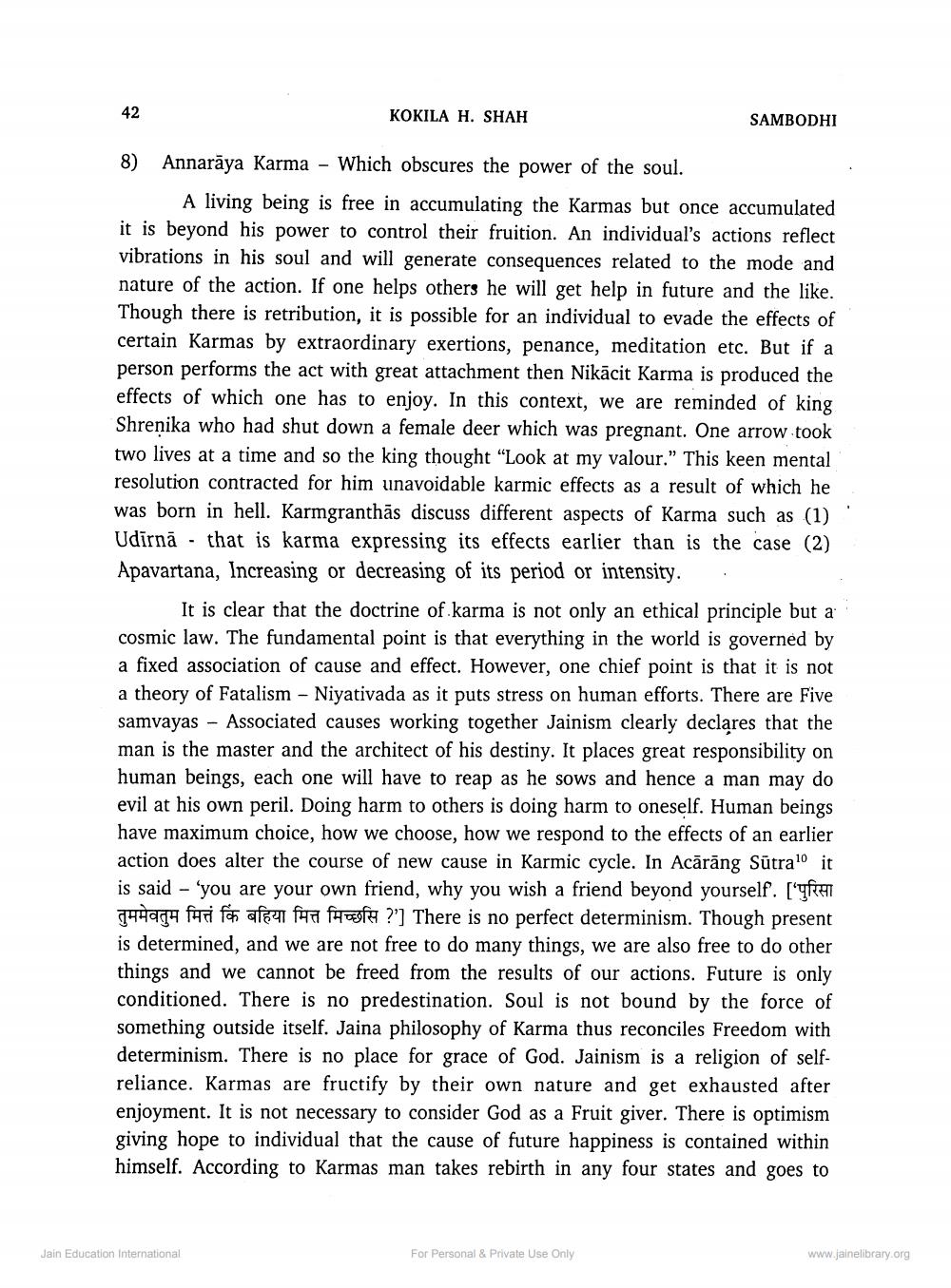________________
KOKILA H. SHAH
SAMBODHI
8) Annarāya Karma - Which obscures the power of the soul.
A living being is free in accumulating the Karmas but once accumulated it is beyond his power to control their fruition. An individual's actions reflect vibrations in his soul and will generate consequences related to the mode and nature of the action. If one helps others he will get help in future and the like. Though there is retribution, it is possible for an individual to evade the effects of certain Karmas by extraordinary exertions, penance, meditation etc. But if a person performs the act with great attachment then Nikācit Karma is produced the effects of which one has to enjoy. In this context, we are reminded of king Shrenika who had shut down a female deer which was pregnant. One arrow took two lives at a time and so the king thought "Look at my valour.” This keen mental resolution contracted for him unavoidable karmic effects as a result of which he was born in hell. Karmgranthās discuss different aspects of Karma such as (1) Udirnā - that is karma expressing its effects earlier than is the case (2) Apavartana, Increasing or decreasing of its period or intensity.
It is clear that the doctrine of karma is not only an ethical principle but a cosmic law. The fundamental point is that everything in the world is governed by a fixed association of cause and effect. However, one chief point is that it is not a theory of Fatalism - Niyativada as it puts stress on human efforts. There are Five samvayas - Associated causes working together Jainism clearly declares that the man is the master and the architect of his destiny. It places great responsibility on human beings, each one will have to reap as he sows and hence a man may do evil at his own peril. Doing harm to others is doing harm to oneself. Human beings have maximum choice, how we choose, how we respond to the effects of an earlier action does alter the course of new cause in Karmic cycle. In Acārāng Sūtral it is said - 'you are your own friend, why you wish a friend beyond yourself. ['yfre 949 fuei fó afe fa fhosoft ?'] There is no perfect determinism. Though present is determined, and we are not free to do many things, we are also free to do other things and we cannot be freed from the results of our actions. Future is only conditioned. There is no predestination. Soul is not bound by the force of something outside itself. Jaina philosophy of Karma thus reconciles Freedom with determinism. There is no place for grace of God. Jainism is a religion of selfreliance. Karmas are fructify by their own nature and get exhausted after enjoyment. It is not necessary to consider God as a Fruit giver. There is optimism giving hope to individual that the cause of future happiness is contained within himself. According to Karmas man takes rebirth in any four states and goes to
Jain Education International
For Personal & Private Use Only
www.jainelibrary.org




